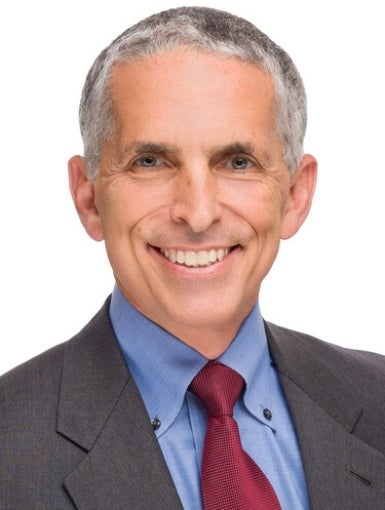
No matter how long the journey is, the road to a doctoral degree can be filled with challenges, triumphs and inspiration to last a lifetime. While working on polling and political consulting as vice president/principal at Greenberg Quinlan Rosner, Jeremy Rosner made time to follow his passion and earn his Ph.D. from the University of Maryland School of Public Policy.
“I had always wanted to get my Ph.D.,” says Rosner. “It was something I always wanted to do. I had seen a lot in my career at the White House, in presidential campaigns, in polling and in the National Security Council that I wanted to make sense of. A lot of things struck me as interesting and puzzling that I wanted to spend more time thinking through.”
In addition to his interest in having time to think through some of this real-world experiences in an academic setting, Rosner says he also wanted to complete his doctoral degree to fulfill his personal goal of being intellectually challenged. “I was very pleased that the University of Maryland and the School of Public Policy were willing to let me do it on a part-time basis, I was very appreciative of that,” Rosner says. “I had a great experience with my coursework there and worked with great people. I was able to work with some extraordinary faculty.”
My big takeaways were about the very nature of public opinion and what public opinion means and whether polls are an accurate or even useful measurement of public opinion and why. For me it was very profound and I gained very big insights that have really changed the way that I think and write.Jeremy Rosner SPP Alumnus
Unlike the typical graduate student, Rosner came to SPP with plenty of work experience. Before starting at Greenberg Quinlan Rosner, he served as special assistant to President Bill Clinton, working as counselor and senior director for legislative affairs on the staff of the National Security Council. Rosner also worked as senior associate at the Carnegie Endowment for International Peace and the Progressive Policy Institute. “I was already a partner at my firm, I had already accomplished things like working at the White House before my Ph.D, so it wasn’t like my Ph.D. enabled me to achieve great things in my career or boosted my income,” he says. “It did hugely deepen my understanding of the issues I work on and I think really strengthened my intellectual muscles and my ability to frame inquiries.”
Although he didn’t gain career advancement through his studies, Rosner says he did gain valuable knowledge that helps him in his work. “One of the really fascinating things for me was you start out on a dissertation on some line of inquiry, but what you end up learning is often very different from what you thought you were going to end up learning,” he says. “For me, my big ah-has were on things I didn’t expect. My big takeaways were about the very nature of public opinion and what public opinion means and whether polls are an accurate or even useful measurement of public opinion and why. For me it was very profound and I gained very big insights that have really changed the way that I think and write.”
Rosner adds “I’m a huge fan of the University of Maryland and the School of Public Policy. The combination of top-tier faculty, the diversity of resources and the proximity to Washington make it a great program. It was life changing for me, but less about my career and more about the way I think about a whole range of things that I pursue in my daily life.”
Recently, Rosner served as a panelist for the Saul Stern Program – Election 2014: What Happened and Why? event at the UMD School of Public Policy.

